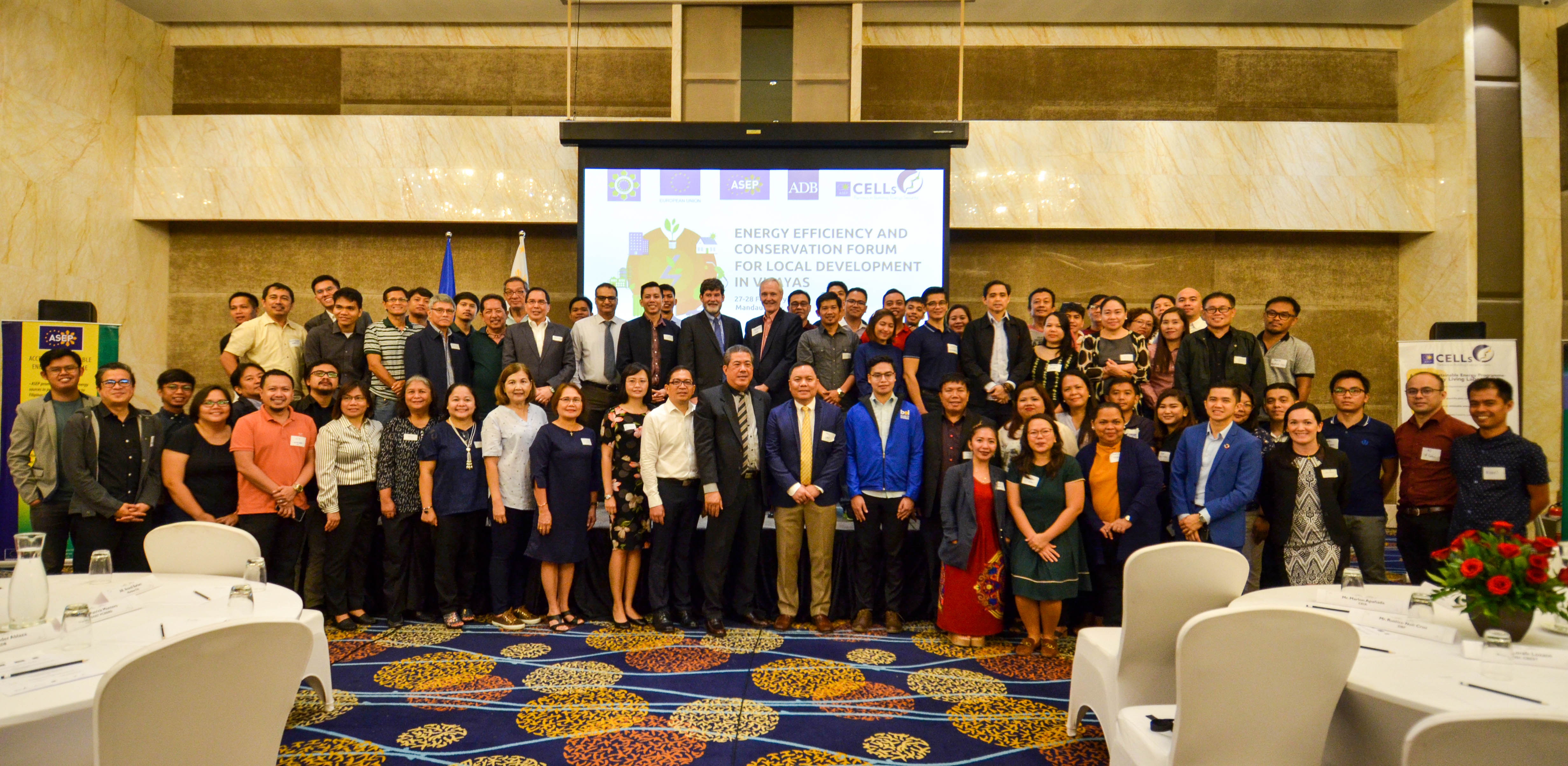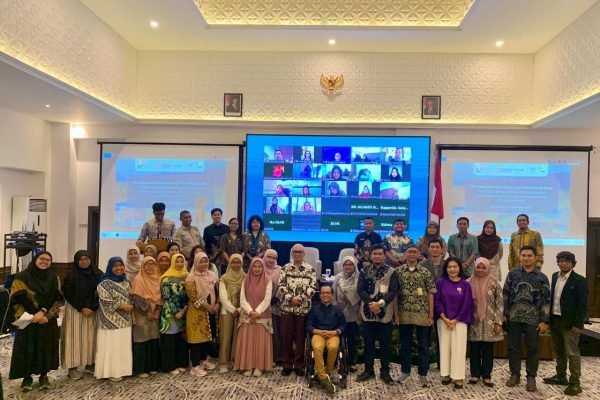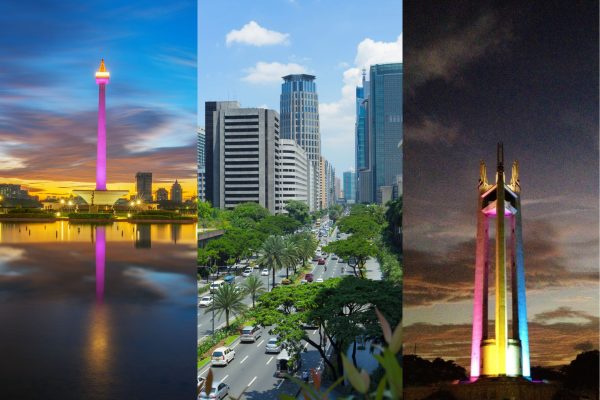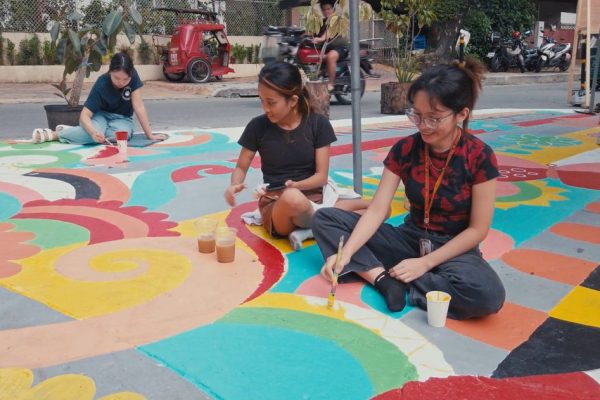The cooperation between the ASEP CELLs Project, ICLEI-SEAS, DOE, EU-funded ASEP TA, and ADB enabled one of the pioneering forums on EE&C in the Visayas region
Mandaue City, Philippines—From 27-28 February 2020, the Access to Sustainable Energy Programme – Clean Energy Living Laboratories (ASEP-CELLs) through ICLEI – Local Governments for Sustainability Southeast Asia Secretariat (ICLEI SEAS), in partnership with the Department of Energy (DOE), the European Union-funded ASEP Technical Assistance, and the Asian Development Bank (ADB) convened stakeholder groups for the Energy Efficiency and Conservation Forum for Local Development in Visayas. More than 100 participants from local governments, universities, national government agencies, and the private sector took part in the event
The two-day activity brought the spotlight to the key features of the new energy efficiency and conservation (EE&C) law or the Republic Act 11285, discussed its implementing rules and regulations, and addressed some of the questions on the role of local governments in adopting EE&C strategies in long-term development and investment planning.
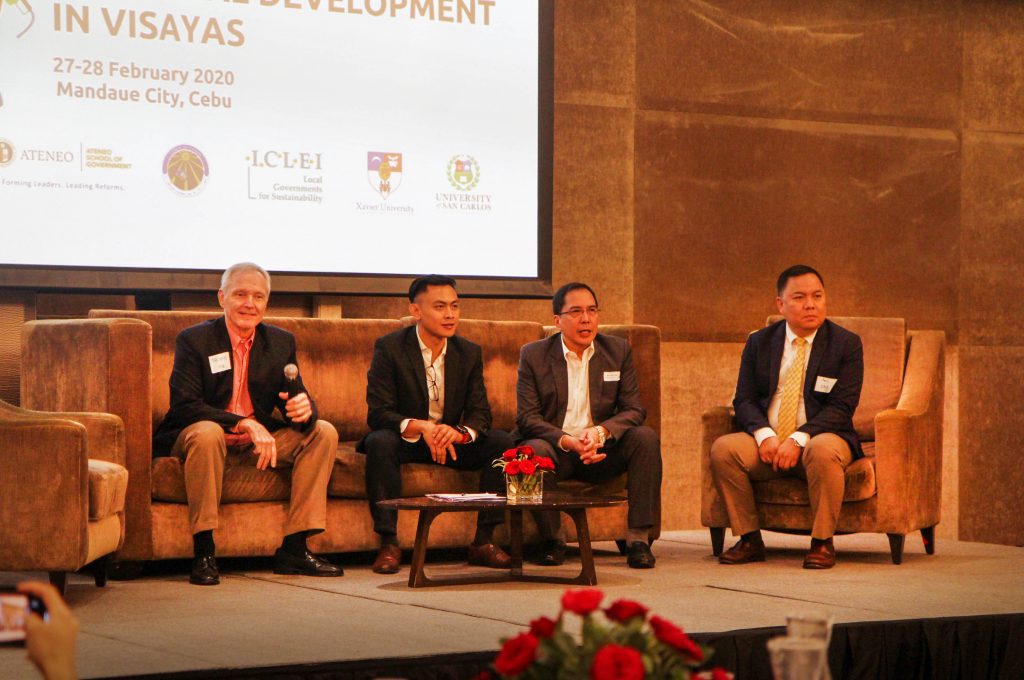
Thomas Dreesen, Energy Efficiency Expert, ADB; Marlon Apanada, Country Lead, Clean Energy Investment Accelerator; Alexander Ablaza, Energy Efficiency Expert, ADB; and Rustico Noli Cruz, Senior AVP Development Bank of the Philippines served as panelists during a session that addresses financing options for energy efficiency projects.
Director Patrick Aquino of DOE’s Energy Utilization Management Bureau shared the core elements of the EE&C law and highlighted DOE’s programs to support local governments in designing energy conservation strategies. A key component of the law is the development of a Local Energy Efficiency and Conservation Plan (LEECP), to be designed and implemented by local government units in the country. Government financial institutions are mandated to offer concessionaire financing and provide incentives through the Local Investment Incentives Plan.
To provide a comprehensive view of EE&C planning, the forum also hosted speakers from private and public agencies to present available EE technologies for building upgrades, financing modalities for EE projects, and incentives to accelerate EE uptake across different levels. Engr. Jose Rey Maleza of DOE Visayas Office presented the region’s energy outlook to ground the discussions and agenda to the local context.
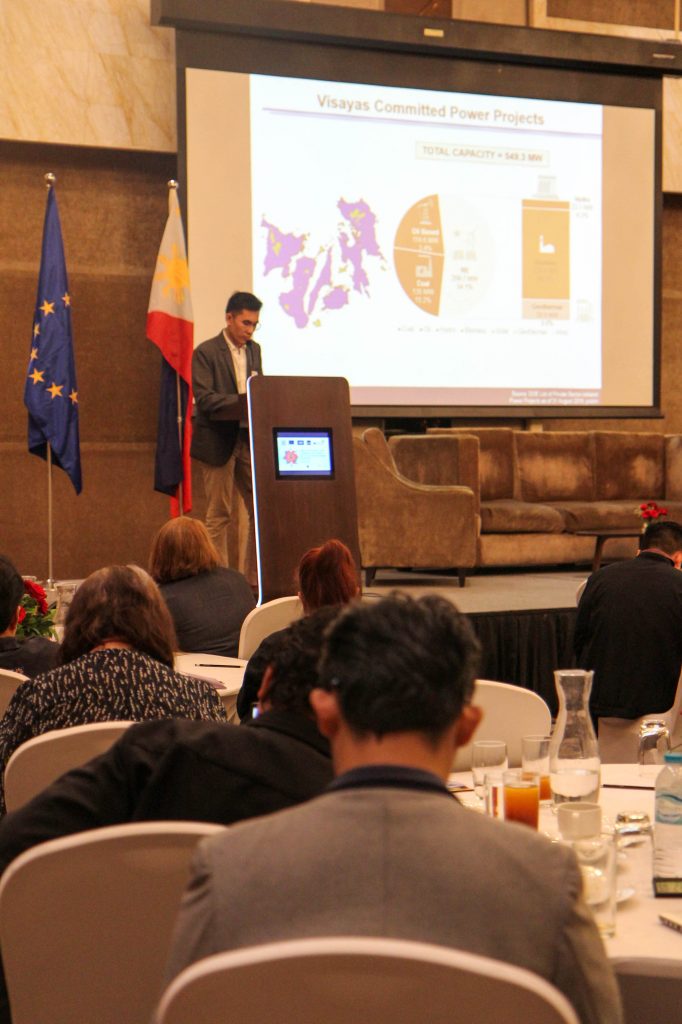
Engr. Maleza of DOE Visayas discussed the region’s need for an additional 9,180 MW capacity by 2040, which EE&C strategies can augment
Green facility development walk-through
The second day brought participants to Mandani Bay – a 20-hectare mixed-use development that integrates green building measures in the properties being built. The participants had the chance to explore the model units of a residential building that received a five-star BERDE rating – a Philippine voluntary green building rating system.
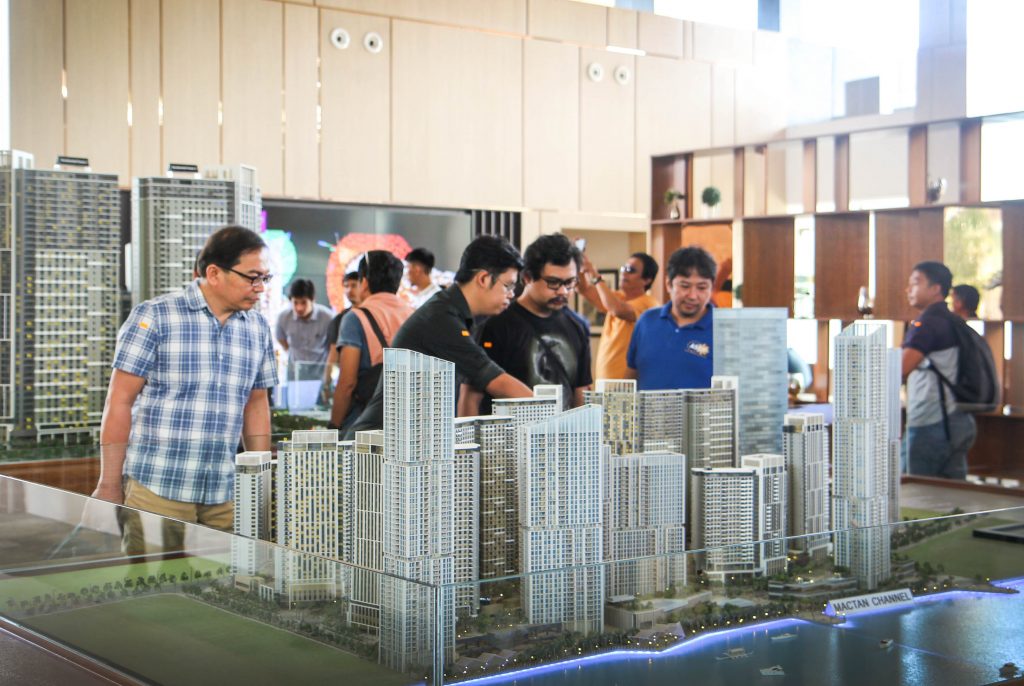
Day 2 featured a site-visit to Mandani Bay, a development area that uses broad green building measures.
The Province of Bohol, through its Planning and Development Office, as represented by Engr. Ronilita Bunado, noted that the discussion regarding RA 11285 was beneficial especially to local governments like Bohol Province. She and her colleagues expressed that the Bohol can benefit significantly from a similar forum tailored to the province and its other LGUs and from a provincial wide energy efficiency and conservation planning workshop.
This forum is the first of succeeding EE&C forums to be headed by ICLEI SEAS, as supported by the ASEP-CELLs Project and its consortium. ICLEI SEAS is working closely with partners to scale the forum in Mindanao, Luzon, and at the national level.
About the ASEP-CELLs Project
The ASEP-CELLs is a project funded by the European Union and implemented by the Ateneo School of Government (ASoG) in partnership with Manila Observatory, ICLEI-SEAS, Xavier University, and University of San Carlos.
The project supports the DOE and EU in achieving 100% rural electrification through renewable energy, thus increasing the share of renewable energy in the Philippines’ energy mix, and promoting energy efficiency towards sustainable and inclusive growth.
From 2019 to 2022, ASEP-CELLs will build knowledge management, invest in capacity-building and promote advocacy. Through its CELLs in Luzon, Visayas and Mindanao, the project will produce research studies to enhance energy policy-making and program interventions, strengthen capacities to help institutions better respond to sustainable low-carbon renewable energy challenges; and increase public awareness and stakeholder engagement to sustain political support and commitment to low-carbon renewable energy pathway, energy efficiency, and energy access.
Additional links
- Department of Energy: “DOE-ASEP Takes EE&C Forum to the Visayas”
- EU-ASEP: “DOE-ASEP Takes EE&C Forum in Visayas”
- Philippine Energy Efficiency Alliance: “DOE, EU-ASEP, ADB and ASEP-CELLs reach out to Visayas LGUs for EE&C”
- Philippine Information Agency: “Energy Efficiency and Conservation Regional Forum”

